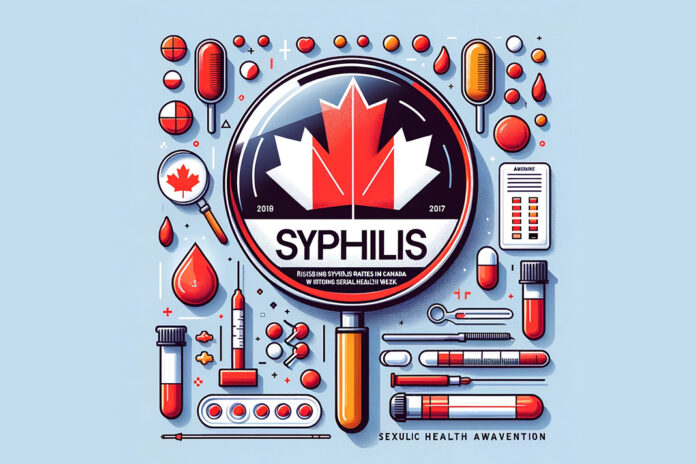Syphilis is a sexually transmitted bacterial infection that can cause serious heart, brain, blood vessel and nervous system problems if left untreated. You can learn more about the different stages of syphilis infection here. Since not everyone will develop noticeable symptoms of syphilis, particularly in the early stages of infection, people may become infected without knowing it. This makes it easier for the infection to spread undetected, which reinforces the critical importance of early testing, diagnosis and treatment.
Congenital syphilis is a particularly serious condition, and occurs when syphilis is transmitted from the pregnant person to the fetus during pregnancy. The consequences are devastating – it can result in fetal loss, stillbirth and significant life-long health problems for the infant. Congenital syphilis is preventable through timely diagnosis and treatment of syphilis during pregnancy.
Syphilis is largely preventable, treatable, and curable if diagnosed. It is important for sexually active individuals with new or multiple partners, and for all pregnant people, to be screened for syphilis. The earlier you start treatment, the better your health outcomes. You can also take proactive steps to reduce your risk of syphilis by practicing safer sex using barriers such as condoms or dental dams. Talk to a healthcare professional to learn more about how you can reduce your risk.
Sadly, too many individuals and their families across the country are facing the devastating health complications of untreated syphilis . It is our collective responsibility to tackle this issue. Barriers like stigma and discrimination, socioeconomic factors, such as income disparities and educational gaps, and a lack of culturally safe care, are obstructing access to testing and treatment.
Healthcare professionals and community-based organizations have an important role to play by creating welcoming spaces so that people can access person-centred, culturally relevant, and trauma-informed care. They can also help reduce stigma by normalizing discussions about sexual health and integrating screening for sexually transmitted and blood borne infections (STBBI) into routine medical care. We must also leverage new technologies to ensure that everyone can benefit from early screening, diagnosis, and treatment.
I encourage all levels of government, community organizations and health professionals to join me in raising awareness of the health risks related to untreated syphilis and to work together to ensure access to timely testing and treatment to help people get the care they deserve, and to reduce the impact of this significant public health threat in Canada.









